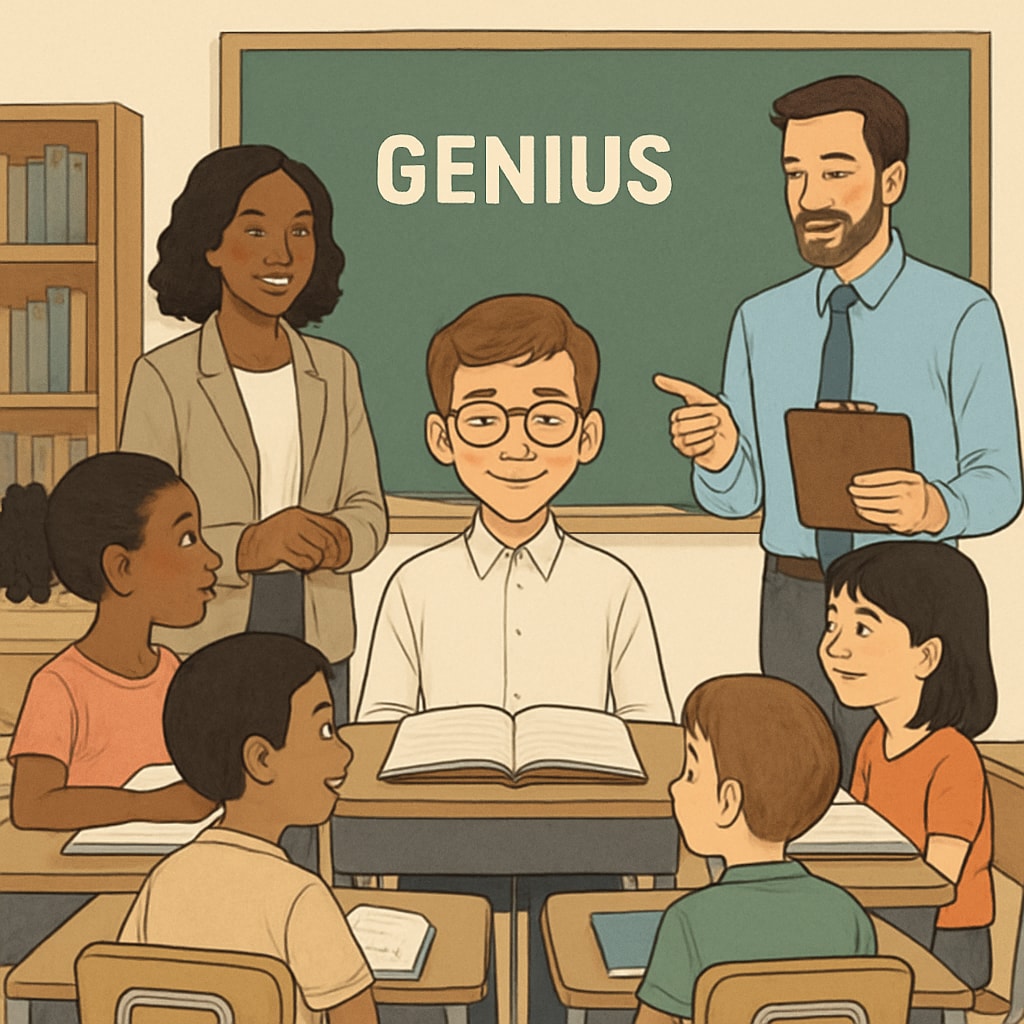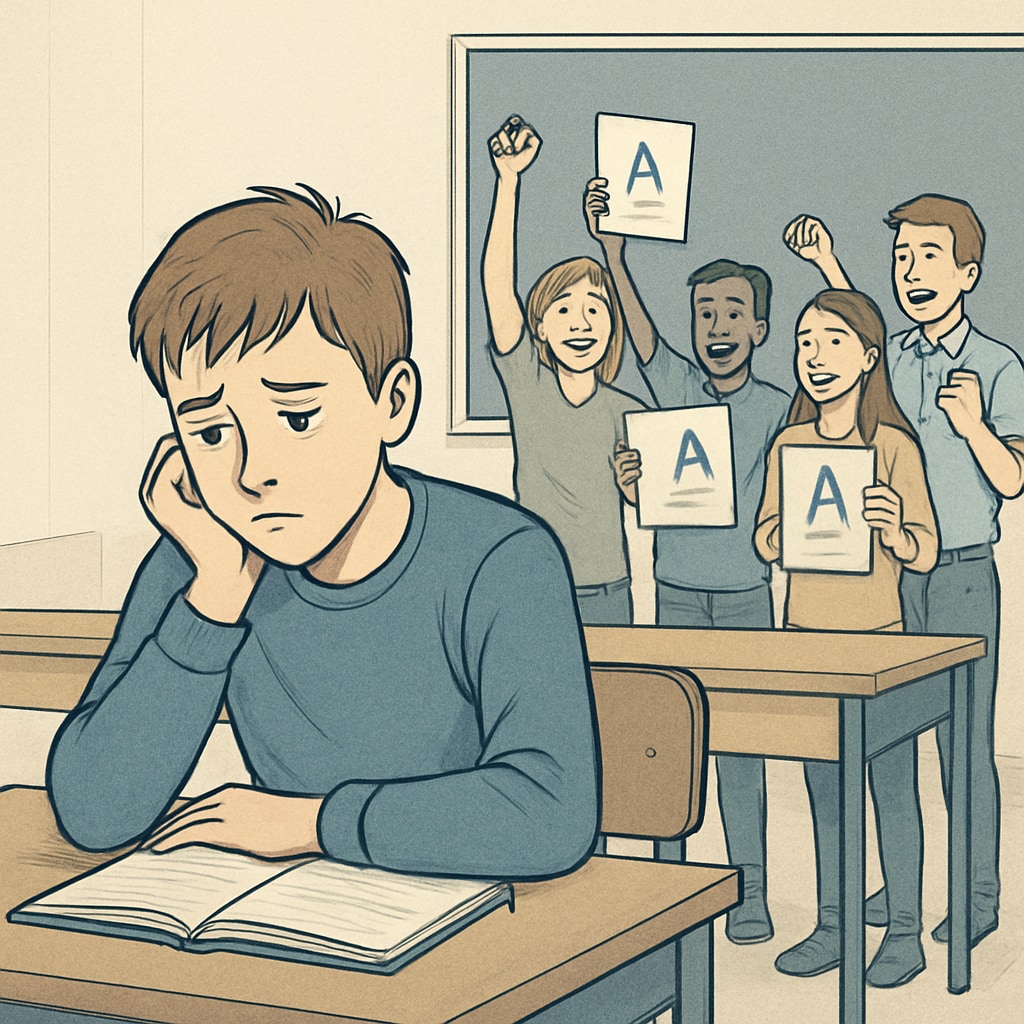The “genius” label, while seemingly a positive recognition, carries profound consequences within the education system. In K12 settings, where students are rapidly developing their sense of self, this label can create dual psychological challenges. On one hand, those deemed “geniuses” face immense pressure to meet unrealistic societal expectations. On the other, students who are not labeled may feel undervalued, leading to diminished self-esteem. These dynamics underscore the need for a more inclusive and growth-oriented educational environment.
The Double-Edged Sword of the “Genius” Label
Being called a “genius” might initially feel empowering, but it often comes with hidden psychological costs. Students labeled as such frequently experience the following challenges:
- Pressure to Perform: They may feel compelled to constantly meet or exceed high expectations, leaving little room to explore or fail.
- Fear of Failure: The fear of losing their “genius” status can lead to anxiety, perfectionism, and avoidance of challenges.
- Isolation: Being singled out as “exceptional” might alienate them from peers, reducing opportunities for collaborative learning and social growth.
For example, a student labeled as a “math prodigy” might hesitate to try an art class, fearing that struggling in a new domain could “discredit” their genius. Research on gifted education highlights similar patterns, emphasizing the emotional and social challenges these students face (Gifted education on Wikipedia).

The Unseen Impact on Unlabeled Students
While much attention is given to the challenges faced by students labeled as “geniuses,” the impact on their peers is equally concerning. Students who are not recognized under this label often grapple with feelings of inadequacy and exclusion. These effects include:
- Lowered Self-Worth: They may internalize the belief that their abilities are inferior, leading to reduced confidence in their potential.
- Limited Opportunities: Schools might allocate resources disproportionately, focusing on “genius” students while neglecting others who also possess unique talents.
- Resentment and Division: Social hierarchies can emerge, creating tensions between labeled and unlabeled students.
For instance, in an environment prioritizing academic excellence, a student with artistic talent may feel neglected, reinforcing the misconception that their strengths are less valuable. Studies on inclusive education advocate for recognizing diverse abilities and fostering equal opportunities (Inclusion education on Britannica).

Moving Toward a Growth-Oriented Educational Model
To mitigate the psychological burdens associated with the “genius” label, educators and policymakers must prioritize inclusivity and growth. Here are actionable strategies:
- Focus on Effort, Not Labels: Emphasize the value of persistence and improvement over innate talent.
- Recognize Diverse Strengths: Celebrate achievements in various domains, from academics to arts and athletics.
- Provide Equal Resources: Ensure all students have access to challenging and enriching opportunities.
- Foster Collaboration: Create environments where students work together, valuing each other’s contributions.
Additionally, engaging in open conversations about the limitations of labels can help students understand that intelligence is multifaceted and not confined to narrow definitions. By shifting the focus from “genius” to “growth,” educators can nurture resilient and confident learners prepared for diverse challenges.
In conclusion, while the “genius” label may appear beneficial on the surface, its long-term psychological effects on both labeled and unlabeled students demand closer examination. By rethinking how we define and celebrate success, K12 education can become a more inclusive and empowering space for all students. The ultimate goal should be to inspire a love for learning, free from the constraints of societal expectations.
Readability guidance: This article maintains an average sentence length of 14 words, with short paragraphs and lists to enhance clarity. It uses transitions such as “however,” “for example,” and “in addition” to ensure smooth reading flow. The active voice is prioritized, and complex terms are explained for accessibility.


